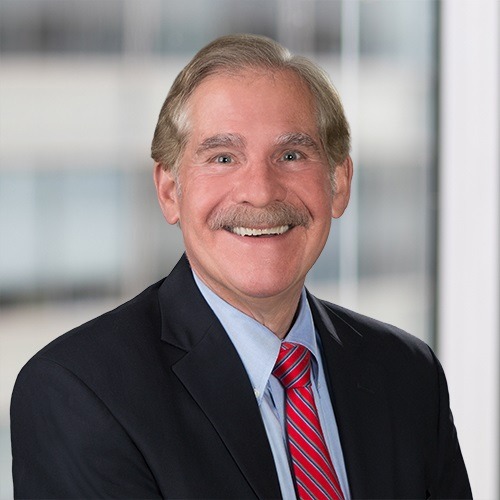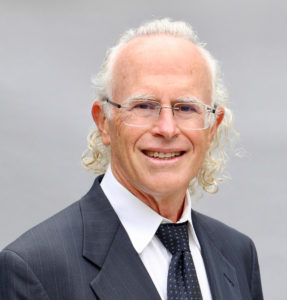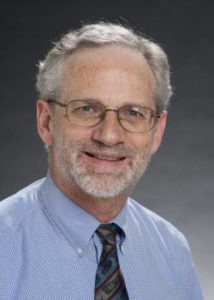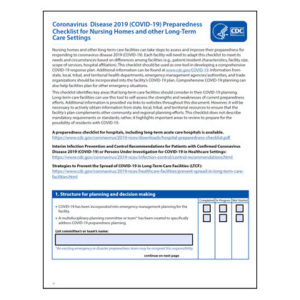LTC care quality: The medical directors’ view
While medical directors have overall responsibility for resident care in nursing facilities, their roles are inevitably intertwined with survey findings and any ensuing legal actions, whether from CMS or collateral legal quarters. Additionally, both medical directors and attending physicians play key roles in the survey process. Even though their primary role is a medical one, medical directors often help surveyors understand a resident’s complex pathology or how a certain resident outcome may have been unavoidable in spite of medical and nursing interventions.
During the 2017 AMDA—The Society for Post-Acute and Long-Term Care Medicine annual conference in Phoenix, I spoke with dozens of medical directors, many of whom I’m proud to say are personal friends. What struck me over and over again was the incredible level of dedication and compassion combined with current clinical understandings as they and their colleagues care for the most vulnerable and often medically challenging segment of our population.
What follows are excerpts from some of the leading certified medical directors (CMDs) in the country. I asked them about the strengths and the shortcomings of the current post-acute/long-term care (PA/LTC) industry and how the role of the medical director is changing.
What are some of the most rewarding aspects of being a medical director?
Dr. Charles Crecelius, MD: Seeing a quality improvement process improve the care of the residents while being well received by the staff. I know the process will be far more likely to be lasting when the staff take ownership.
Dr. Daniel Haimowitz, MD: In my facilities, I am treated as part of the administrative team with respect, and I feel like I’m a valued resource. At one facility, I was specifically brought in to be an “agent of change” (as it were), and we are making great strides. I enjoy the QAPI process—since it seems to me that QAPI is increasingly important in the PA/LTC world, I feel that I help to educate the staff and help the facility succeed. What’s more rewarding than that?
Dr. Karl Steinberg, MD: I love being a medical director because it allows me to be an educator, an advocate, a quality improver and a problem-solver. In my experience, people who choose to work in a nursing home are just great people, whatever their discipline… they feel it's a calling to help care for the most vulnerable, needy patients in our society. So, getting to be a leader among like-minded professionals often does not even feel like work.
What are some of the most challenging aspects of being a medical director in a nursing facility?
Dr. Crecelius: Dealing with the problems that never seem to go away—keeping pressure ulcer rates and injurious falls under control in a population that always seems to get more frail and medically complex.
Dr. Haimowitz: With the new models of medical care and changes in reimbursement, it is more important than ever to not only provide excellent care but to prove it with data. There’s an unwritten mandate to “do more with less,” and that is certainly one of the challenges for medical direction. I reach out to the attending physicians more than I have in the past.
There is a huge focus on re-hospitalizations, obviously. This involves much more work and education, from the aspect of identifying at-risk patients, initiating a higher level of care to prevent transfer back to the hospital, discussing goals of care earlier and importantly, and not delaying transfer when it is indicated. I’m really worried about staff “giving up” on patients too early because of the effect on re-hospitalization numbers.
Dr. Steinberg: There are frustrations when the culture of the facility is resistant to change, or when attending physicians are habitually missing in action, or practicing 1990s medicine, like treating asymptomatic bacteriuria with antibiotics or keeping residents on sliding-scale insulin indefinitely.
How can medical directors set the tone for resident-centered care?
Dr. Crecelius: By being in the trenches and working side by side with the direct caregivers. Success comes from the front lines first and not from the desk.
Dr. Haimowitz: Ideally, the medical director serves as the role model for excellence for all aspects of resident care—medically, ethically and spiritually. I feel the bar has been raised for the performance of everyone in PA/LTC, including the medical director.
Dr. Steinberg: I think the key is to treat residents and their families as you would want your own family members (or yourself) to be treated. Especially when they are near the end of life, we need to concentrate on the things that make a day a good day for our residents. There's no need to wake them up at 3 a.m. for vital signs or check finger-stick blood sugars four times a day or restrict their diets.
Can you comment on CMS’ imposition of seemingly excessive civil money penalties?
Dr. Crecelius: CMS has significantly increased the amount of civil money penalties (CMP) imposed against skilled nursing facilities (SNFs). Most of my cases where I am defending a nursing home against a civil money penalty or other CMS action, the amount of the CMP is well over $1 million.
Dr. Cari Levy, MD, PhD: Excessive fines deplete providers and ultimately harm residents if there is not a well-crafted plan to correct the identified problems and invest every cent into resident-centered programs aimed at enhancing care rather than writing a check to CMS and/or a state agency.
What changes could improve the survey process?
Dr. Crecelius: There needs to be more physician input in determining the scope and severity of alleged deficiencies.
Dr. Haimowitz: First, let’s acknowledge that the survey process doesn’t include all that much about medical care. In some respects that’s good, but in others it conceivably is a missed opportunity to improve care. It would be wonderful if the survey process was far less punitive and offered more constructive comments to help facilities do better. Trying to improve education to surveyors has been sort of like the Holy Grail in my state for years, but we haven’t been able to figure out the best way to approach it. It would also be nice if surveys could be less arbitrary and capricious, and offer more consistency region to region.
Dr. Levy: Survey teams have wisdom from exposure to many good and destructive processes of care. Their wisdom should be used in a collaborative and advisory capacity. Standardization across states is also needed.
How can medical directors set the tone for quality resident care?
Dr. Crecelius: They need to ensure the attending physicians are providing appropriate care. Too many times I have seen an issue with the attending physician hurting the nursing home with warning signs the medical director should have seen.
Dr. Levy: Frame discussions and action around the Golden Rule of treating others as you wish to be treated.
Dr. Steinberg: I think any medical director needs to be, most importantly, available 24/7. When the nurses can't get hold of the attending doc, or when an unusual situation arises, the medical director must be there for the facility and its residents. It's also critically important—and more so in the last few years—for the medical director to lead quality initiatives and be present when the survey teams are around. A little explanation from the medical director can often result in surveyors deciding not to issue a deficiency, or to lower the scope and severity. I know this from multiple experiences over the years.
How involved with the survey process should medical directors/attending physicians be?
Dr. Crecelius: They need to introduce themselves and ensure the surveyor contacts them for care issues.
Dr. Haimowitz: I’ve always offered my assistance to surveyors at the beginning of the survey. I wish I could be of more help to them. But the issues in the survey seem mostly to be non-clinical.
Dr. Levy: Be present, introduce yourself to the survey team and remind staff to direct the survey team to you for appropriate questions.
For this article, I spoke with many other medical directors who shared similar beliefs and overarching themes. The most salient and obvious characteristic of these medical directors is their absolute commitment to rendering the highest quality of care to the residents who entrust their lives to them. It is not just a job, but a calling.
Too often we see negative stories about nursing homes, highlighting the proverbial “bad apples.” But the exception should not swallow the rule. These medical directors and so many more represent one of the untold and shining aspects of post-acute and long-term care that the media too often overlooks.

Alan C. Horowitz, Esq., is a partner at Arnall Golden Gregory LLP, where he focuses his legal practice on regulatory compliance for skilled nursing homes, hospices and home health agencies and manages cases where the Centers for Medicare and Medicaid Services (CMS) has imposed an enforcement action. He is a former assistant regional counsel Office of the General Counsel, U.S. Department of Health and Human Services. As counsel to CMS, he was involved with hundreds of enforcement actions and successfully handled appeals before administrative law judges, the HHS Departmental Appeal Board and in federal court. He also has clinical healthcare experience as a registered respiratory therapist and registered nurse. He can be reached at alan.horowitz@agg.com.
Related Articles
Topics: Alan C. Horowitz , Clinical , Executive Leadership , Leadership











